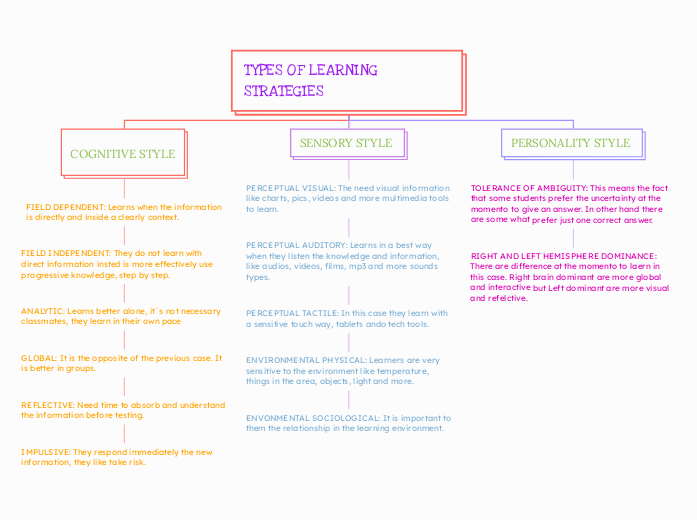realizată de Derlis Morales 1 an în urmă
155
TYPES OF LEARNING STRATEGIES

realizată de Derlis Morales 1 an în urmă
155

Mai multe ca acesta
PERCEPTUAL TACTILE: In this case they learn with a sensitive touch way, tablets ando tech tools.
ENVIRONMENTAL PHYSICAL: Learners are very sensitive to the environment like temperature, things in the area, objects, light and more.
ENVONMENTAL SOCIOLOGICAL: It is important to them the relationship in the learning environment.
ANALYTIC: Learns better alone, it´s not necessary classmates, they learn in their own pace
GLOBAL: It is the opposite of the previous case. It is better in groups.
REFLECTIVE: Need time to absorb and understand the information before testing.
IMPULSIVE: They respond immediately the new information, they like take risk.